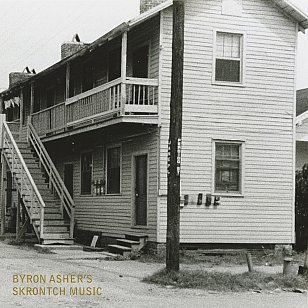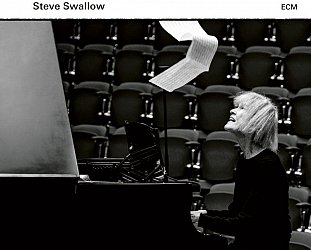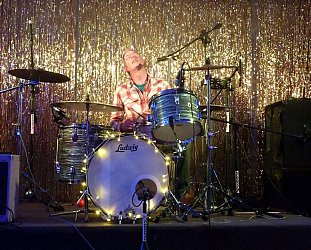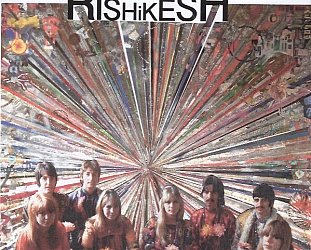Graham Reid | | 1 min read
Elegy

Clarinetist/saxophonist/composer Byron Asher is not only based in New Orleans (hence the record label's name) but deeply immersed in its unique music and singular history.
With a 10-piece band on this ambitious but immediately engaging debut album, the award-winning composer crafts a five-movement piece based on his jazz research at Tulane University and interviews with members of the Preservation Hall Jazz Band.
It is brought to colourful life by musicians who have played with John Boutte, Tim Berne and Marcus Roberts, or have been in other ensembles including the New Orleans Jazz Orchestra.
Let it be said that this is not some faithful recreation of bygone music but – as the introductory sound collage of the 13-minute opener Blues Obligato announces – something which touches the past and acknowledges it (Sidney Bechet for example) but also, as the piece evolves, exists in the more recent world with influences from the elegance of Ellington's bands and Nawlins funk.
Then, shortly after, the 21stcentury arrives with influences from the minimalist school on Aural History with its weave of melodic lines and repetition like early Philip Glass, then over a bed of melancholy horns the piece includes interview snippets from old jazz musicians reminiscing.
Voices are integral to this project (readings of an historic 19thcentury Supreme Court judgement appears in the swinging bop of Comite des Citoyens) because as a scholar Asher recognises people and history can speak for themselves without mediation.
The music can have a low intimacy or a cinematic reach (the lovely Elegy emerges from a quiet place into a widescreen, soaring piece then a controlled chaos tapestry of horns, cannoning drums and affirming bass) and the players here are exceptional.
To single any out would be unfair to the others because this is a project greater than the sum of its talented contributors (although there's some very cool arco playing by bassist James Singleton on the closer After This That!).
This is vibrant and living jazz which can also be stately and reflective as it brings the traditions into the present tense.
Very much a listening album which rewards every repeat play.
Check out the clip (and give it three minutes).
You can hear Skrontch Music at Spotify here.
Byron Asher is interviewed at Elsewhere here.





post a comment